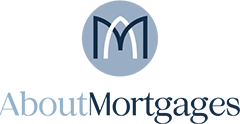How to get a mortgage on a low income in the UK
10 February 2023

What defines a low income in the UK?
There is no set figure that determines what a low income is, especially in the context of mortgage applications. However, mortgage lenders will use your income to calculate your affordability and eligibility for a mortgage product. This affordability will determine how much you can borrow from the lender, based on the monthly repayment that the lender believes you can afford.
Four tips to help get a mortgage on a low income
-
Try to increase your credit score
Your credit history will be looked at to understand whether you are a trustworthy borrower. Whilst every lender uses a different method to analyse your credit history, there are certain best practices that you can follow to ensure your credit record is looking its best. Ensure that all details are correct, such as previous addresses. It is important to check your credit report regularly, to see if any missed payments or mistakes have been made, so that you can attempt to rectify them. Even registering to vote at your current address can help improve your mortgage application, as it helps confirm to the lender your name and address.
2. Focus on reducing debt
Where possible, try to clear any debts before applying for a mortgage. Having debt or other loans will increase your monthly outgoings, which will reduce the monthly repayment amount that the lender believes you will be able to afford. Additionally, fully repaying debts and loans can help to show that you are a responsible borrower.
3. Prioritise saving for a bigger deposit
The larger your deposit, the lower the loan-to-value rate that you would need to purchase a house. A lower loan-to-value ratio means a lower risk to the lender, and it might make you eligible for a lower interest rate. A lower interest rate will reduce your monthly repayment. Not only will this reduce your costs, it will also increase your likelihood of passing a mortgage affordability assessment on a low income.
4. Reduce your outgoings
When applying for a mortgage, the lender will calculate your expected monthly repayment budget by analysing your incomings against your outgoings. If you are on a low income, then minimising your outgoings is an essential step in maximising what the lender calculates you can afford. Whether it be cancelling an unused gym membership, opting for a lower phone contract or reducing your amounts of visits to local restaurants, reducing your monthly outgoings will help you apply for a mortgage on a low income.
Government-backed schemes to help mortgage applicants with low incomes
Shared Ownership
Shared ownership mortgages operate on a part-buy, part-rent basis. You buy a share of a property from a housing association, and pay a reduced rent on the remainder of the property. Through the scheme, arranged by a specialist local Help to Buy agent, you buy between 25% and 75% of the property. Through a process called staircasing, you can buy a larger share of the property at a later date, based on the value of the property at that time.
Lifetime ISA
A Lifetime ISA, sometimes referred to as LISA, lets you save a maximum of £4,000 every tax year towards either your first home mortgage deposit or retirement, with the state adding a 25% bonus on top. You are able to open an LISA if you are between 18 and 39, and you can save every year up until your 50th birthday. It is designed to be a long-term savings product, not one for regular withdrawals.
Factors that affect your mortgage eligibility
Your income is only one, albeit important, factor that a lender will use to determine your mortgage eligibility. Other factors that a mortgage lender will consider include but are not necessarily limited to include:
- The size of your deposit
- The source of your deposit
- The total loan-to-value ratio
- Savings
- Credit history
- Outgoings
Put simply, being on a low income does not necessarily rule you out of applying for a mortgage. The mortgage lender will calculate your affordability, taking into account factors such as your income, outgoing and credit history. By minimising debt and monthly outgoings whilst showing a track record of being a trustworthy borrower, you will maximise your chances of success when applying for a mortgage. For extra peace of mind, you can receive tailored advice specific to your financial situation and plans from one of our friendly team of mortgage advisors. Book your free, no-obligation appointment using the link below.
